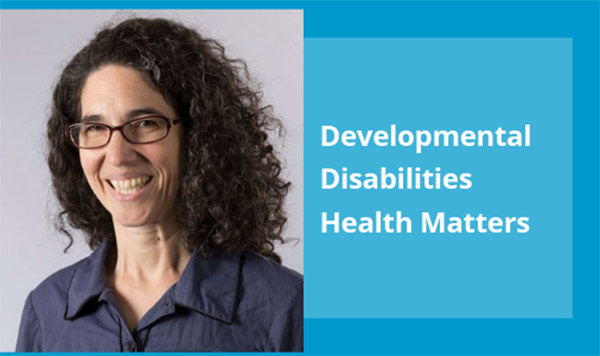Our most recent ICES report, Addressing Gaps in the Health Care Services Used by Adults with Developmental Disabilities in Ontario, focuses on five areas of concern: repeat emergency department visits, repeat hospitalizations, staying in hospital after being ready to be discharged, living in long-term care, and dying prematurely, each of which are more likely to occur for adults with developmental disabilities compared to other adults. We worked on this provincial report together with H-CARDD partners from across the province and the solutions to the problems we revealed in the report require further partnerships and collaborations.
Our report ends with a call to action. At a time where Ontario health care is undergoing a major transformation, it is essential that we talk about how we can better meet the needs of this group. The problems will not go away if we do not come together to design solutions, and these solutions need to be embedded into our broader health care strategies.
These results are disturbing. While it is true that adults with developmental disabilities are more likely to have health problems, this should not translate into problematic health care or them being that much more likely to die prematurely. We cannot explain why this is the case from our big picture study, but we hope it pushes all of us to ask questions and look more closely at what we can do to change these numbers.
If you have a developmental disability, you may want to know how you can make sure you get the health care you need when you need it. You may need more time, more care, or a different kind of care than what you are getting. How can you learn more about your health and health care, so you can do your part to get help early before health problems get very serious and harder to treat or fix?
If you are a family member, you also may have questions after reading this report. What more you can learn about using the health care system, how to be a good family advocate, and how to catch health issues early?
If you are a health care provider, you may want to ask yourself: Do I have the skills and knowledge I need to provide the care people with developmental disabilities need and deserve? Is there more we need to do in the system so I can do my job better?
And if you are a health care administrator, perhaps this report is a reminder to take a closer look at how well your organization is doing supporting its patients with developmental disabilities. Do you know who they are? Is your staff prepared? Do you know who the people are outside of your organization that you should be partnering with to offer the best, seamless care?
And if you work in policy that impacts the health of people with developmental disabilities, what more can be done so that this group does not continue to fall through the cracks?
#DDHealthMatters – it matters to me, it matters to my sister who has a developmental disability, to our family, and it should matter to all of us. Let’s use the numbers, stories and recommendations from this report, and keep talking about what we are doing, and what more we need to do to improve the health of this population here in Ontario, and across our country.
Use this hashtag to explain why #DDHealthMatters to you and how you can make a difference.
Story written by Dr.Yona Lunsky
Editor’s Note: Dr. Yona Lunsky is Director of the Azrieli Adult Neurodevelopmental Centre, Senior Scientist in the Adult Neurodevelopment and Geriatric Psychiatry Division, and Director of the Health Care Access Research and Developmental Disabilities (H-CARDD) Program at CAMH. She is Professor and Developmental Disabilities Lead in the Department of Psychiatry at the University of Toronto and Adjunct Scientist at the Institute for Clinical Evaluative Sciences (ICES).

